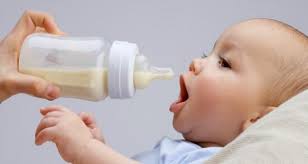The common belief that breastfeeding a child to sleep can lead to tooth decay arises out of articles published over 30 years ago that were based on case studies involving a small group of children. In the intervening decades, evidence-based research involving larger population samples seems to disprove the original theory and even shows that breastfeeding may actually help protect developing teeth from decay.
The Mechanics of Breastfeeding vs. Bottle-Feeding:
The way in which the milk enters the mouth is significantly different between breastfeeding and bottle-feeding. When a baby nurses on a mother’s breast, the nipple is drawn toward the back of the mouth so that the milk is directed to the throat and largely bypasses the developing teeth. The breast will also only release milk when the baby is sucking. Once the child falls asleep and stops sucking, the flow will stop. With a bottle, however, the milk is released into the front of the mouth and is allowed to pool around the teeth. The nipple of the bottle will also continue to leak milk into the mouth even if the child falls asleep.
Chemical Makeup of Breast Milk vs. Formula:
Certain antibodies and proteins found in breast milk may actually prevent the growth of Streptococcus mutans and other bacteria that can cause tooth decay. Many formulas also contain sucrose as opposed to lactose, which provides a food source for the bacteria. The lower pH of many formulas can also weaken tooth enamel, which opens the door to decay.
The Bottom Line:
Overwhelming evidence suggests that breastfeeding and allowing babies to nurse themselves to sleep does not cause tooth decay. It is important to note, however, that breastfeeding does not mean that a child is immune from developing cavities. A number of factors, including sugar intake, exposure to S. mutans, genetics, and overall oral hygiene can also contribute to tooth decay.
At Morrin Dental, our children’s dentistry program offers treatments and education designed to encourage a lifetime of good oral health. Contact us today to arrange an appointment for your child.
